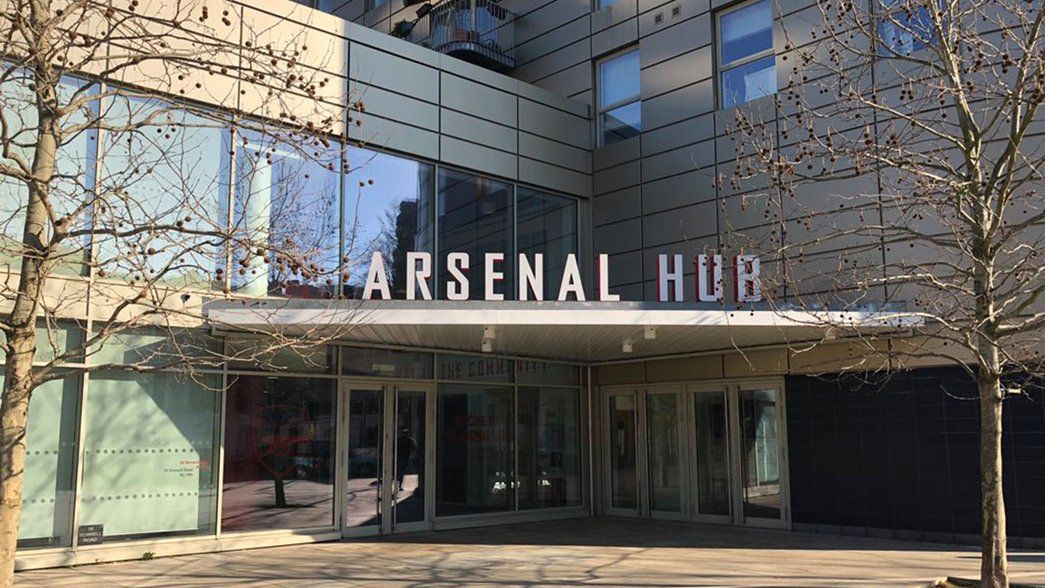In 2015 Arsenal in the Community set up the Alternative Education Provision programme, an ambitious attempt to offer education and support to a group of youngsters from the Elthorne Kicks project who were generally acknowledged to be “high risk” and causing a disproportionate amount of trouble in and around the area.
There was a growing number of young people coming into the park who were openly smoking weed and riding bikes around in a visible and sometimes intimidating manner. Staff knew most of these boys through either the Pupil Referral Unit or other Arsenal in the Community programmes but, while there was always a certain level of respect between the young people and our staff, some of the other participants felt on edge when these boys were around. Levels of anti-social behaviour and crime were rising, and locals were on their guard.
Coming to a head
The situation escalated when two boys known to Arsenal in the Community assaulted another youngster in the park and were convicted. As part of their Youth Referral Order they were instructed not to attend Elthorne Kicks because it was so close to where the crime happened.
One of the offenders was then stabbed in the leg and local statutory services were becoming increasingly concerned about the group. The service approached us to enquire about the boys re-engaging, although this wasn’t possible under the terms of their Youth Referral Orders. And the mood around the park soon got even worse, with a marked increase in crime.
Arsenal in the Community became further involved when two brothers attending the Kicks session were arrested and taken home to be searched for tools that were alleged to have been used to commit crime. With the boys’ mother at work, one of our staff members attended the police station and bailed the boys, and down the line attended the court hearing to provide character references.
This proved to be a significant moment because, on the journey home, the coach was able to talk to the boys about what they really wanted to do with their lives and how change might be possible.
It was about a month later that the Alternative Education Provision pilot started, almost as a last resort to support the group, who were never convicted of the alleged offences.
The programme involved six young people (two pairs of brothers and two other youngsters known to the Kicks programme) who were at the core of the larger group. They were chosen because they were all NEET (Not in Education, Training or Employment), we already had strong relationships with them and they were the most influential members of the group. They were also the youngsters that various services including the police and social services were most concerned about.
The Youth Offending Service believed that all six of the young people were on a downward spiral and at risk of becoming a danger to themselves and other members of the community. It was also acknowledged that giving all of the other services six weeks of respite from these young people would be helpful.
Brighter futures
The six youngsters picked up from their homes on the Elthorne Park estate each morning and taken to the Arsenal Hub. The project was challenging, and two members of staff from Islington Youth Services and Arsenal in the Community were with the group at all times. The boys attended full time three days per week and continued going to the Kicks sessions on the four evenings it was on at the park.
The programme provided a mixture of numeracy and literacy support as well as life skills to help these youngsters leave the programme more confident that they would secure employment. The group also engaged in gym and education sessions three days per week at The Arsenal Hub. Over a six-week period there was a massive drop in anti-social behaviour on the estate, with not one single report against anyone in the group, even though they had previously come to the attention of the authorities on a regular basis.
Christine Kyriacou, Detached Youth Work Manager at the London Borough of Islington, says that by the end of the six weeks “everyone was getting quite drained”. But she also suggested that this period did create respite for the agencies that had been dealing with their behaviour – and it was also respite for the participants’ parents as well. She believed that relationships at home also improved during this time.
“We noticed that the boys were taking some of the skills they had learned home, and for example they were cooking with their parents for the first time,” Kyriacou says. “We also thought their social skills improved. I guess it showed them that the four workers who were giving them their time were genuinely interested in them and cared about what happened to them. It was an intense time, but it was a genuine surprise to them that we valued the time we spent working with all of them.”
Arsenal in the Community has developed a new Alternative Education Provision programme since then, delivering two sessions each week from The Hub without as much need for the wraparound programme that this first group required.
The programme has grown and developed with more pathways into employment than ever through an expansion of the qualifications offered. The football programme has also developed, with young people now having the opportunity to develop their interest through organised matches at the weekend.
You can rest assured that, for as long as Arsenal in the Community exists, we will continue to help young people escape crime and anti-social behaviour by providing them with the education and the opportunities they need to build better lives and brighter futures.
“If it wasn’t for Arsenal I’d be in jail” – read Calvin’s case study here
Copyright 2024 The Arsenal Football Club Limited. Permission to use quotations from this article is granted subject to appropriate credit being given to www.arsenal.com as the source.










